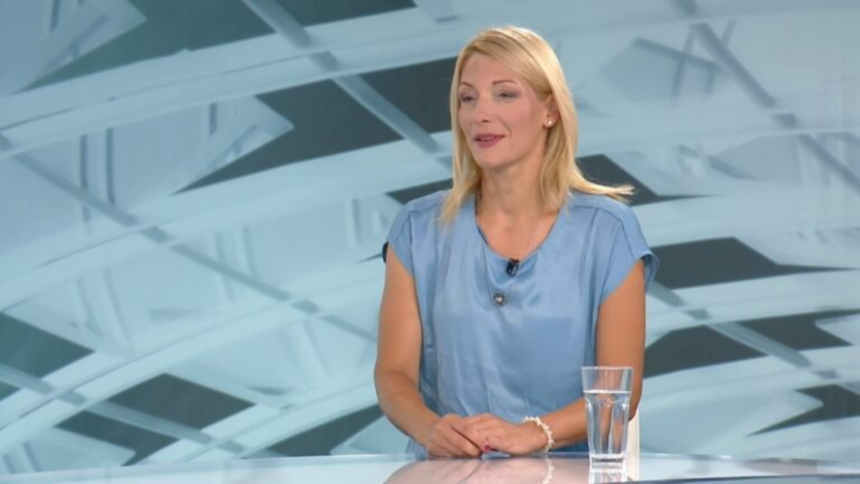Bojana Selaković, Coordinator of the National Convention on EU Affairs in Serbia, stated in an interview with RTK that Serbia is currently stagnating in its European Union integration process, highlighting that no new chapters have been opened in the last three years. She emphasized that relations with Kosovo, geopolitical pressures, and internal reforms will be key factors in accelerating this process.
Selaković pointed out that progress in relations with Kosovo remains crucial for both the region’s stability and Serbia’s overall EU accession process. According to her, the EU expects Serbia to fulfill obligations stemming from previous agreements.
“Relations between Serbia and Kosovo remain a key issue for the European Union, as they are seen as the foundation for security and stability in the region. The EU reports on Serbia do not contain new conditions, but stress the need for the implementation of existing obligations as outlined in the Brussels and Ohrid agreements,” Selaković explained.
She reminded that the implementation of obligations under Chapter 35, related to dialogue with Kosovo, is fundamental for Serbia and is a formal legal obligation.
Regarding the Banjska issue, Selaković clarified that it is not a new obligation but part of the existing dialogue. “The obligations regarding Banjska are already included in the dialogue, so this is not a new condition. However, the messages received so far have been clear – Serbia is expected to show goodwill in fulfilling its obligations. Nevertheless, this issue is no longer dominating the domestic political discourse,” she added.
According to Selaković, Serbia is facing stagnation in its EU integration process, and she highlighted the geopolitical factors, which have gained significant importance since the beginning of the war in Ukraine, as the main obstacle to further progress.
“Over the last two and a half years, it has become clear that the geopolitical dimension has gained significant weight for the European Union and member states when it comes to deciding Serbia’s progress. Before the war in Ukraine, relations with Kosovo were the primary political issue. Now, they have become further complicated by Serbia’s relations with Russia. Geopolitical pressure on Serbia is expected to continue rising,” she stated.
She stressed that this pressure should push Serbia to align more rapidly with EU values and fulfill its obligations related to technical alignment with EU standards.
In conclusion, Selaković assessed that Serbia faces major challenges on its path to EU membership.
“Nearly three years have passed without a new chapter being opened, while the pace of reforms across all sectors has been very slow, not sufficient for meaningful progress,” she said.







